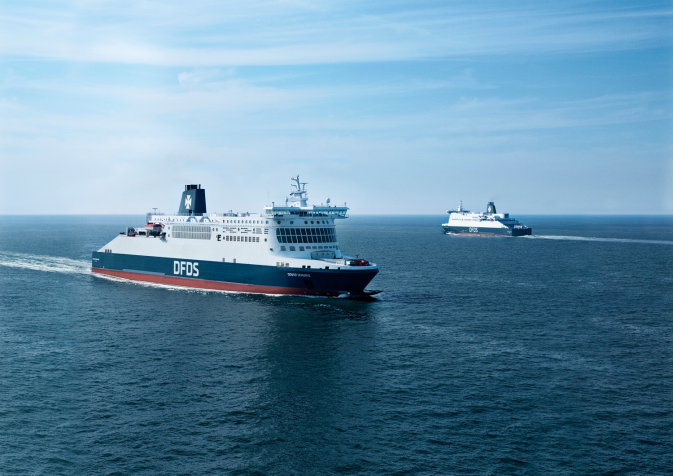
Danish ferry company DFDS has announced a commitment to invest in battery-powered electric vessels on its English Channel routes.
The company made the announcement following a visit by the French Foreign Minister, Olivier Becht, to the company’s base in France. During the visit, the minister spoke with DFDS CEO Torben Carlsen to discuss the government’s plans to decarbonise the passenger crossings of the Channel.
Carlsen said the Danish company had agreed to “cooperate” with governments on both sides of the busy shipping corridor: “I am happy to continue our cooperation with the French government to accelerate the decarbonisation and enable green transport corridors across the English Channel.”
DFDS made the commitment to deploy fully battery-powered ferries in the Eastern Channel by 2030. The company currently runs a fleet of five ferries from France and employs 800 French nationals.
The Channel Crossing routes are seen as optimal for battery-powered electric ferries because of the short distance.
Carlsen said the “green transition” is a key area of focus for both DFDS and the French government and therefore a relatively easy space to collaborate. But it will not be entirely straightforward, according to the Dane.
How well do you really know your competitors?
Access the most comprehensive Company Profiles on the market, powered by GlobalData. Save hours of research. Gain competitive edge.

Thank you!
Your download email will arrive shortly
Not ready to buy yet? Download a free sample
We are confident about the unique quality of our Company Profiles. However, we want you to make the most beneficial decision for your business, so we offer a free sample that you can download by submitting the below form
By GlobalDataHe said: “We have a shared ambition with the French Government to accelerate the transition to a greener future for the shipping industry. This is not an easy task. It requires significant investments in innovation, technology and infrastructure, as well as collaboration and partnerships between the public and private sectors.
“But I am positive that we are on the right track. We will invest in green vessels and cooperate with ports and governments on both sides of the channel to decarbonise cross-channel transportation.”
The exact nature of the “cooperation” agreed by Carlsen and Becht is unclear as yet, but Carlsen was clear that decarbonisation would require public-private cooperation across a broad range of sectors.
He explained: “The green transition is a complex challenge that requires all hands on deck. We need support from public authorities, infrastructure parties, utility providers, customers and suppliers.”



